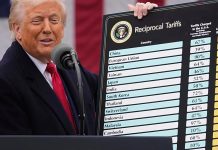Africa-Press – Mauritius. The new government has to do better than being vindictive if it wants Mauritius to develop and get on the fast track. Mauritians need a strong and good governance.
Lenience is not a word that Mauritians should ever know, as they take undue advantage of it. A democratic authoritarian rule is what this country needs at this moment and not a conflict between the Executive and the President of the Republic.
The outcome of the general elections of 2005 shows that this country is a divided one. So far there are many prospects and unfinished projects ahead in making Mauritius a new tiger of the Indian Ocean, not to say a duty free island.
Lee Kuan Yew once told a group of students that ?Singapore belongs to all of us. We made this country from nothing, from mud flats. ? It is man, human skill, human effort, which made this possible.
The success of Singapore and other East Asian countries in achieving rapid and equitable growth have inspired our leaders since the study of developing economies began in earnest in the hope of identifying a formula that their economies could implement to emulate the East Asian economic development experience.
There are signs and symptoms that Mauritius is gradually and very slowly getting like Singapore of the 80?s and 90?s in so far as its swift economic recovery is concerned.
This issue is now baffling many Western and African economists as they desperately try to interpret the factors that helped the Mauritian recovery in a very confused scenario.
However, those who understand the limited relevance of economic theory to the prosperity and wealth of nations will not be surprised by the swift recovery and good standard of living conditions in this part of the Indian Ocean.
Today, prosperity and confidence are plainly returning to most of the East Asian nations. Mauritius too is having its fair share of prosperity and confidence where its population is better off than most Third World Countries.
It seems even for a giant like Japan the outlook does not look that pessimistic despite the fact that the recovery mood in Asia may not go very deep as yet.
Human capital The economies in East Asia that grew rapidly in the 1980?s and early 1990?s used the same policy instruments as other developing economies, but with greater success.
Economists however conclude by saying that East Asia?s extraordinary growth was due to superior accumulation of physical and human capital and that these economies were also better able than most to allocate physical and human resources to highly productive purposes.
The striking internationalization of competition in the 1990?s was accomplished by major shifts in the economic fortunes of nations. Governments and firms have inevitably been drawn into a heated debate about what to do.
Due to our consistent failure in the past to adopt a development model to suit Mauritius? physical and human resources, much discussion over the last 20 years has been centered around the eight economies in East Asia.
Interestingly, the two common factors that helped East Asia to grow faster than any other region of the world were the ?national environment? and a strong government. Singapore?s boom was identified with just one person; Lee Kuan Yew. Mr.
Yew in his farewell speech to his party just before he relinquished office said: ?Your generation has to grapple with the problems of relative success, with a future no longer primarily concerned with overcoming poverty, ignorance, disease, and unemployment.
That the baton has been passed on to a vigorous group with high ideals and principles is the most important single achievement in the last 10 years. ? Realistically speaking, the crux of the difference between ?success? and ?failure? lies in the basic philosophy.
If the basic philosophy is wrong, then however strong, determined and able party leaders and members are, the end result will still be a defeat and disaster, as has happened in the communist countries.
On the other hand, is socialism as flawed as communism? The reality is that communists often call themselves socialists and confuse everyone. So whether socialism is flawed depends on how we define socialism. If by socialism we mean state control of all the factors of production, then socialism will no doubt fail like communism.
But if by socialism we mean a philosophy, which tries to equalize opportunities in each generation, after inequalities have resulted because of different endowments and efforts in a previous generation ? that of their parents, then such socialism need not fail.
However, if in the name of socialism, redistribution of wealth goes too far, it will stifle motivation to compete and do one?s best. Then socialism will cause failure.
Iron rice bowl The Singapore government improved the lives of people by increasing the equality of opportunities. This was done by making health, education, housing, jobs, more easily accessible to all.
Had the government attempted a policy of equality of rewards, which was what many countries attempted, they would have failed. Equality of rewards would have met the ?iron rice bowl?. This must mean minimal effort by everyone and low productivity all around, resulting in poverty.
Many people in Singapore complain that while income and bonuses have increased and taxes have been reduced, the government at the same time has increased medical charges, university fees, road fares, fines and foreign mail levies.
The government explanation has been that, with each year?s wage increases, labour costs increase. So, health services, university fees and cost of services go up. According to government sources they have two options: increase taxes and pay for these increased labour costs.
But by increasing taxes and paying for the increased subsidies, the end result would slow down the economy and become uncompetitive in the world market, or the best way to get money?s worth of goods or services?to give the consumer the money and let them choose what and where to buy it.
It is obvious that there must exist a balance between the government and the people, a question of judgment. Furthermore, the ideal balance will vary from time to time, and from situation to situation.
Lee Kuan Yew suggests that, ?we must do enough to improve social cohesion and national unity: winners must be well rewarded but non-winners must also share in the gains, though not to the same extent?. It is very much like a tennis or swimming tournament.
If a few top winners take all and there are a few consolation prizes for other participants, then those who are likely to win the top prizes will automatically give up coming to the tournament to participate.
Let us not forget that what took place in Singapore in the 80?s and 90?s could happen to any other countries provided these countries have the assets, resources, ability to deliver the goods, the quality of good leadership and most important the vision and determination of its leaders and the support of its people.
For More News And Analysis About Mauritius Follow Africa-Press







